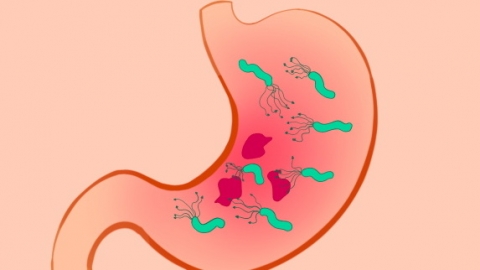Which department should I visit for Helicobacter pylori infection?
Helicobacter pylori is commonly referred to as H. pylori. In general, when undergoing examination or treatment for H. pylori infection, individuals can choose to visit departments such as gastroenterology, gastrointestinal surgery, general medicine, physical examination centers, or spleen and stomach disease departments based on their symptoms and needs. Specific details are as follows:

1. Gastroenterology: This is the primary department for diagnosing and treating H. pylori infection. Doctors in this department specialize in gastrointestinal diseases and can accurately detect H. pylori using methods such as carbon-13 or carbon-14 breath tests and gastroscopy. They can also develop standardized eradication regimens based on the infection status.
2. Gastrointestinal Surgery: If H. pylori infection has led to severe conditions such as peptic ulcers or gastric polyps and surgical intervention needs to be evaluated, patients may consult the gastrointestinal surgery department. While managing structural gastrointestinal abnormalities surgically, this department also conducts testing and treatment for H. pylori.
3. General Medicine: For mild symptoms, individuals who wish only for preliminary H. pylori testing or are uncertain whether their symptoms are related to the infection can visit the general medicine department. General practitioners will perform an initial assessment and basic testing; if specialized care is required, they can assist with referrals to appropriate departments.
4. Physical Examination Center: Individuals who want to include H. pylori testing during routine health checkups can go directly to a physical examination center. These centers typically offer convenient breath testing services. If test results indicate infection, individuals will be advised to seek further diagnosis and treatment at a specialized department.
5. Spleen and Stomach Disease Department: When seeking care at a traditional Chinese medicine (TCM) hospital, patients can visit the spleen and stomach disease department. This department uses TCM pattern differentiation and may employ herbal medicine, acupuncture, and other therapies to support the treatment of H. pylori infection, while also improving associated digestive symptoms such as bloating and acid reflux.
Before visiting a doctor, it is recommended to prepare a summary of personal symptoms—such as stomach pain, acid reflux, or belching—to help the physician better assess the condition. Prior to testing, follow medical advice to discontinue antibiotics, acid-suppressing medications, or other drugs that might affect test results, ensuring accuracy of the diagnosis.







